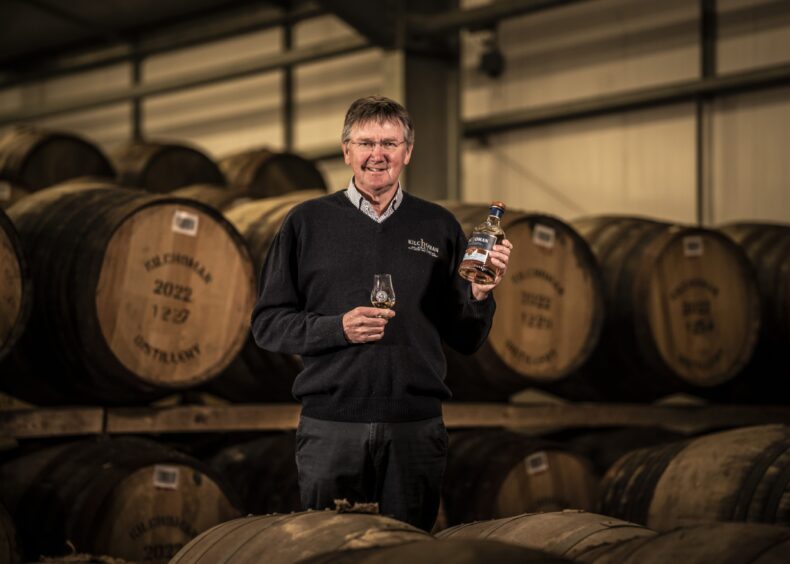Highland whisky distillers are grappling with the impact of Donald Trump’s new 10% tariff on their exports to the US.
However there may be a silver lining — Scotch could gain a competitive edge over Irish whiskey, which will now face an even steeper 20% tariff.
The tariffs, due to take effect this Saturday, are part of Trump’s ongoing efforts to boost the US economy and protect American jobs.
They have already sent shockwaves through global markets, with whisky makers among the hardest hit in Scotland.
Alasdair Day, of the Hebridean Isle of Raasay Distillery and R&B Distillers, called the situation a “disappointment,” particularly for newer distilleries that are still finding their feet in the American market.
Trump tariffs and turbulent times
“For businesses like ours, it’s a turbulent time,” Mr Day explained.
“We’re at a stage where our presence in the US is still growing, and this tariff adds to the challenge.”
While the 10% tariff may make Scotch more expensive in America, he believes it could give Scotch an advantage against its rivals in Ireland and Japan.
“Irish whiskey now faces a 20% tariff, so whether that gives Scotch a competitive edge remains to be seen,” Day said.
“There are so many knock-on effects that we won’t fully understand until a few months down the line.”
The rise in price is designed to make American bourbon and single malt more appealing to US consumers.
“We saw this with the 25% tariff during Trump’s last term,” Mr Day added.
“It really hurt, and it slowed down our growth in the States. It’s not as bad this time, but it’s still a blow.”
Meanwhile, Anthony Wills who runs Kilchoman distillery on the Isle of Islay, says Trump’s new tariff is a “massive blow” for business after an already challenging year.
“With everything else that’s going on – increases in National Insurance, rising duty in the UK, and higher minimum wage – it’s blow after blow,” he said.
“The economic headwinds we’ve all been experiencing make it very challenging for every industry, but for Scotch whisky, as a major exporter, it’s huge.”
‘Massive blow’ to Scotch distillers
Taken together, Mr Wills says it’s an even more challenging time for distillers than back in 2019 when Trump placed a 25% on Scotch whisky as part of a wider trade dispute with the EU.
He said: “Hopefully, something will be resolved over the coming months so these tariffs can be rescinded.
“In the meantime, each company has to deal with it. One of the options, which we did last time when we had tariffs in 2019, was sharing those tariffs with our importer in the US so that the shelf price remained the same.”
Industry calls for action
Annabel Thomas, founder and chief executive of Nc’nean Distillery on the Morvern Peninsula, says the 10% tariff could be a lot worse.
She wants to see industry bodies and the UK government work towards bringing tariffs down or at least work to pinpoint an end date.
“I don’t hold out much hope of them achieving that but we will see,” she said.
“I don’t think trade tariffs are a good idea for the global economy full stop.”
Reaction in Holyrood
In Holyrood, First Minister John Swinney expressed concern over the impact of the tariffs on the Scotch whisky industry.
He said he would be “really worried” if he ran a distillery.
“I know just how much commitment and sacrifice has been made by the Scotch whisky industry to get to the position it’s now in,” he said. “It will be feeling sore this morning because it’s obviously just had another big hurdle put in its way in one of its most significant markets.”
Tariffs took centre stage at First Minister’s Questions, just a day before Mr Swinney heads to the US to promote Scottish interests – though there are no plans to meet anyone from the Trump administration.




Conversation